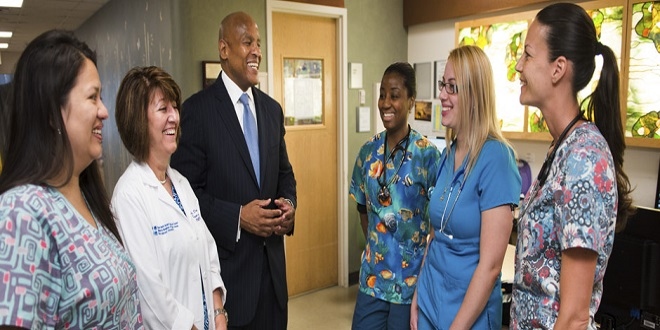Preparing for a healthy pregnancy after 35

Several women have been choosing to postpone their pregnancy until their 30s for professional and personal reasons. Although female fertility starts declining in the 30s and 40s, many women have a healthy pregnancy and deliver a healthy baby after their 20s.
Prenatal care and preparation are extremely important for women who plan to get pregnant after 35 as the risk of pregnancy complications, like hypertension and gestational diabetes, increases with age. Additionally, many women above 35 years of age may need to take the help of assisted reproductive technologies like IVF (in vitro fertilization), ICSI (intracytoplasmic sperm injection), and surrogacy if they fail to conceive naturally.
I. Understanding the Challenges of Pregnancy After 35
While many healthy women above 35 years of age can go on to have healthy babies, there are some challenges related to pregnancy in the case of advanced maternal age. The risks associated with advanced maternal age are as follows:
- Difficulty in conceiving naturally
- Decreased fertility with age
- Increased need to undergo fertility treatments like IVF
- Chromosomal or other abnormalities in the baby
- Premature birth
- Stillbirth
- Cesarean birth
- Miscarriage
- Gestational diabetes
- High blood pressure (pre-eclampsia)
- Growth-restricted or small baby needing regular monitoring during pregnancy
- Abnormal placenta position leading to slow growth of the baby, bleeding problems in pregnancy, and premature delivery
II. Preconception Planning
If a woman is planning a pregnancy, it is recommended to visit a gynecologist for a pre-pregnancy checkup and to discuss what she needs to do to boost her chances of having a healthy pregnancy and subsequently a healthy baby, advised Dr. Ian Hardy. His academic and professional background includes being a Fulbright Scholar, receiving grant support for his research, and being board certified in Obstetrics and Gynecology, as well as Reproductive Endocrinology and Infertility. He has an AB degree in Biology and minors in Science in Human Affairs and Theatre from Princeton University, and he earned his MD and PhD degrees from the University of Cincinnati College of Medicine.
Some important steps that are included in preconception planning are:
- Lifestyle changes like maintaining a healthy weight, eating a well-balanced diet, and avoiding the use of alcohol, tobacco, and any illicit drugs are recommended.
- Certain tests like blood tests and cervical screening tests are recommended.
- Any underlying medical conditions need to be brought under control before pregnancy.
- Vaccinations, if needed, need to be administered to reduce the chances of complications for the mother and the baby during or after pregnancy.
- The doctor will also assess any genetic disorders that may run in the family and may impact the mother or the child.
- Prenatal supplements are recommended by the doctor while the woman is planning for a pregnancy and throughout the first half of the pregnancy.
A woman planning her pregnancy will need to keep track of her menstrual cycles and let the doctor know if there are any irregularities in her cycles. Also, she needs to know when she ovulates. This is the time when she is most fertile and is more likely to conceive. Ovulation detection kits are easily available at any medical store.
Doctors at Khushi IVF Clinic recommend women over 35 years old for IVF of age should consult a fertility specialist if they fail to conceive naturally after trying for six months. The fertility specialist will assess the couple and discuss the various fertility treatment options suitable for them.
III. The IVF Process
IVF is a kind of fertility treatment in which female eggs are retrieved from the ovaries and combined with the male sperm outside the woman’s body in a laboratory for fertilization.
A couple of days after fertilization, the fertilized egg, now known as the embryo, is placed inside the female womb or uterus. Pregnancy takes place when this embryo implants itself into the wall of the uterus or womb.
IVF helps couples having problems like advanced maternal age, infertility problems, or medical conditions that prevent them from conceiving naturally.
The IVF success rate for women between 35 to 37 years of age is about 40.8%, 26.8% for women between 38 to 40 years of age, and around 7% for women above 40 years of age.
IV. I Finding the Right Fertility Clinic
The choice of the right fertility clinic can help in increasing the chances of a successful pregnancy. You can find some of the best fertility clinics in countries like the USA, the UK, and India. Khushhi IVF in Ahmedabad is the best hospital in India for fertility treatments and has a very good success rate for IVF treatments.
The following criteria should be considered while choosing the right fertility clinic for your treatment:
- Expertise of the fertility specialist
- The success rate of the fertility clinic
- Facilities offered
- Technology and equipment used
- Comfort level with the doctor
- Transparency in the fertility treatment procedures and cost
- Distance of clinic from the patient’s residence
A reputed clinic increases your chances of a successful pregnancy and helps make fertility procedures a comfortable and stress-free treatment experience for you.
V. Lifestyle Modifications
The patient needs to make a few lifestyle modifications to enjoy a healthy pregnancy and childbirth experience. The following lifestyle changes are recommended while planning a pregnancy
- Eat a healthy and well-balanced diet
- Exercise regularly
- Quit smoking
- Avoid the consumption of alcohol and illicit drugs
- Take prenatal supplements such as folic acid in the dose recommended by the doctor
- Consult your doctor before taking any new medicines
- Manage stress levels by yoga, meditation, or other relaxation techniques
A successful and healthy pregnancy can be achieved by following the above lifestyle protocols, along with the help and support of the fertility specialist and the male partner.
VI. Understanding the Role of Age in IVF Success
As the age of a woman increases, her fertility will decrease. Similarly, the success rates of IVF procedures will also be reduced in cases of advanced maternal age. This happens because the quality and quantity of female eggs reduce with age, known as reduced ovarian reserve. This leads to poor embryo quality, which reduces the chances of embryo implantation within the womb or uterus of the woman.
Most couples need to undergo two to three IVF cycles before successful conception. There is evidence to suggest that the success rate of IVF increases after multiple IVF cycles. It is therefore important to not lose hope and not abandon the IVF process early after two or three failed cycles.
Women who freeze their eggs in their 20s or early 30s can use these frozen eggs for the IVF procedure if they plan to get pregnant at an advanced age. Egg freezing helps preserve the reproductive potential of a woman and helps them achieve pregnancy through IVF or other fertility treatments after the age of 35.
VII. The Importance of Financial Planning
Fertility treatments like IVF are quite expensive and it is important to take the cost under consideration before undergoing the procedure. The approximate cost of IVF treatment ranges between INR 1,00,000 to INR 5,00,000.
The cost of fertility treatments such as IVF varies depending on several factors, like:
- Type of fertility treatment being performed
- Age of the woman
- Medical health status of the woman
- Location of the hospital or clinic
- Experience and skill of the fertility specialist
- Cost of medications and other equipment used
- Number of times the patient undergoes fertility treatments before achieving successful pregnancy results
Most of the health insurance policies in India will not cover the cost of fertility treatments like IVF, IUI, and surrogacy, as these are elective procedures rather than medical necessity. You should check with your insurance company if the diagnostic tests and other additional procedures are covered by your insurance. Getting an estimate of your treatment cost will help you plan your fertility treatment better.
VIII. Preparing for Pregnancy and Beyond
About 10 to 14 days after embryo transfer in IVF treatment, a blood test is performed to check if pregnancy has taken place. In case of a positive pregnancy test, the doctor will assess the health of the patient and give instructions for prenatal pregnancy care. In case of a negative pregnancy test, the doctor will usually recommend undergoing another IVF cycle.
The following instructions are given to the patient in case of a positive pregnancy test:
- Eat a healthy and balanced diet
- Stay hydrated
- Get enough sleep
- Manage stress
- Quit smoking
- Take folic acid supplements
- Avoid alcohol and caffeine consumption
- Exercise regularly
- Have regular follow-up appointments with the doctor and follow all the guidelines provided by the doctor
Conclusion
Although the fertility of a woman decreases with age, achieving a healthy pregnancy after the age of 35 is very much possible with the help and guidelines provided by a good fertility specialist. Several fertility treatment options like IVF, IUI, etc. can help a woman who is unable to conceive naturally to have a healthy pregnancy and childbirth experience.
Source
- https://utswmed.org/medblog/pregnancy-after-35/
- https://www.healthpartners.com/blog/pregnancy-after-35/
- https://www.obgynwestside.com/blog/9-tips-for-a-healthy-pregnancy-after-age-35
- https://princeofwalesprivatehospital.com.au/news/advanced-maternal-age-your-essential-guide-pregnancy-after-35
- https://uk.clearblue.com/fertility/getting-pregnant-over-35





